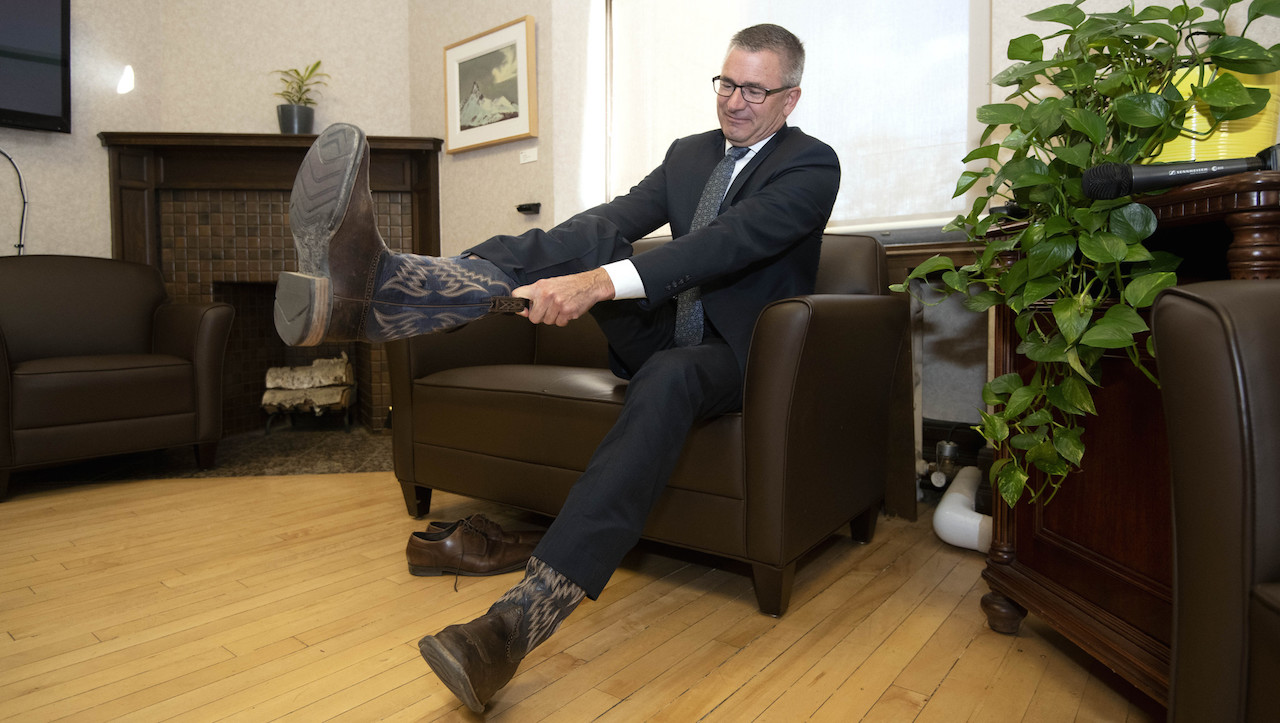Alberta’s a high-wage province! Who knew?
Maybe the question ought to be … Who didn’t?
At any rate, the Kenney government’s “blue-ribbon” panel on Alberta’s finances, chaired by former Saskatchewan finance minister Janice MacKinnon and instructed not even to look at the revenue side of the province’s so-called public spending problem, ignored that inconvenient question.
Presumably that wasn’t because they didn’t know the answer, but because the answer didn’t support the ideologically driven policy MacKinnon’s little band of reliable neoliberals had been recruited to deliver. To wit: cut public services and make the public sector an uncongenial place to work, the better to advance Premier Jason Kenney’s privatization agenda.
But there was also an element in the MacKinnon panel’s terms of reference, it could be argued, that was intended to exact revenge on Alberta’s public employees for having the temerity to have steady employment while the Alberta oil patch was cutting its workforce and thereby causing real pain in the provincial economy.
So with the first United Conservative Party budget scheduled to be tabled later today, yesterday’s report of the Edmonton-based Parkland Institute on the Alberta public sector workforce and what it is paid is timely.
The report challenges the Kenney government’s relentlessly repeated propaganda that the size and compensation levels of Alberta’s public service are too high, and therefore must be addressed through painful cuts of both public sector jobs and pay. This has been said so often, and challenged so little by mainstream media, that it’s drifted into the realm of conventional wisdom.
But as the Parkland report by University of Lethbridge economics professor Richard E. Mueller shows, it ain’t necessarily so.
Using two complementary data sets and a longer, inflation-corrected time frame to provide a more accurate picture of Alberta’s public sector than was offered in the slapdash MacKinnon report, Mueller concluded that “Alberta does not stand out in any way relative to the other three large provinces, both in terms of the size of its public sector size and its compensation.”
“Alberta has actually tended to have a smaller public sector compared to other jurisdictions,” he said — at least if you don’t use misleading measures. “Similarly, the compensation levels of Alberta’s public employees do not stand out when compared to other provinces. In fact, Alberta’s public sector employees tend to earn relatively less than their counterparts in other jurisdictions, especially when the fact that Alberta is a high-wage province is considered.”
“Contrary to the narrative that Albertans have heard over and over again in the lead-up to tomorrow’s budget, Alberta’s public sector compensation levels are at best average when compared to other jurisdictions,” he stated.
“Compared to the roughly 15-per-cent wage advantage Albertans enjoy relative to workers in the rest of Canada, if anything, public sector workers in the province find themselves at a wage disadvantage, so any reductions are likely to have unintended consequences,” Mueller concluded.
Well, it’s nice to know some facts when your government is about to embark on a course of action that not only will do no good, but may cause considerable harm.
Indeed, another report by Toronto-based economic consultant Hugh Mackenzie released yesterday argues that if the Kenney government follows the MacKinnon report’s recommendations, the result will most likely turn out to be a cumulative negative impact on the provincial GDP of 4.8 per cent and a loss of well over 100,000 jobs, about half of them in the private sector.
Unlike previous downturns such as the pain caused by the decline in world oil prices, Mackenzie argued, “the hardship caused by this government’s ill-considered deficit elimination strategy will be entirely self-inflicted.”
Unfortunately, since the Mackenzie report on potential impacts of the MacKinnon report was commissioned by the Alberta Federation of Labour, the UCP’s ideological blinkers will prevent the government from giving any credence to its findings. So I guess we’ll just have to wait for the fallout to say I told you so.
Of course, even without the prospect of a self-inflicted recession, squeezing nurses, teachers, physicians, health-care support workers, and civil servants — many of whom kept their families afloat while the fossil fuel industry used low oil prices to justify slashing its workforce — doesn’t make much sense.
The UCP’s logic nevertheless appears to be pretty clear: the previous NDP government protected public services when the oil patch went into the dumpster; NDP policies have no democratic legitimacy because only Conservatives are allowed to rule in Alberta, by divine right; ergo, any public employee is an ally of the NDP and must be punished.
The instrument of that punishment will be UCP attacks on the public sector, some of which will be contained in today’s provincial budget.
In a short narrative-setting television address yesterday evening, Premier Kenney said program spending would be cut by 2.8 per cent but claimed health and education spending will not be reduced — an effective reduction if you include population growth and inflation in your calculation. In addition, look for much higher cuts in areas that don’t matter to the government, however.
Still, if you’re not going to raise revenues, the millions required for inquiries, snitch lines, war rooms and constitutional jiggery-pokery have to come from somewhere.
The civil service will shrink by about 10 per cent, the premier said.
David Climenhaga, author of the Alberta Diary blog, is a journalist, author, journalism teacher, poet and trade union communicator who has worked in senior writing and editing positions with The Globe and Mail and the Calgary Herald. This post also appears on David Climenhaga’s blog, AlbertaPolitics.ca.
Image: Government of Alberta/Flickr



